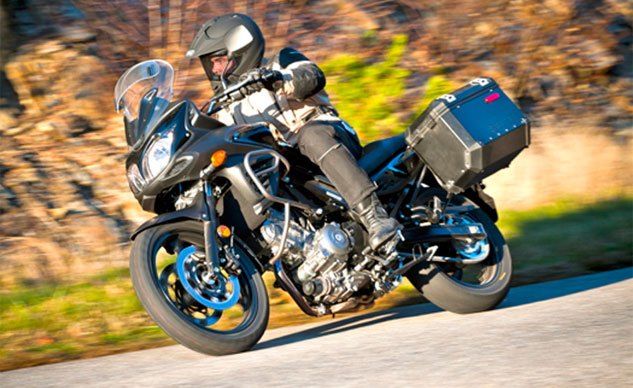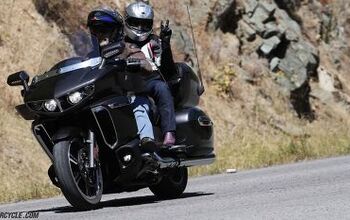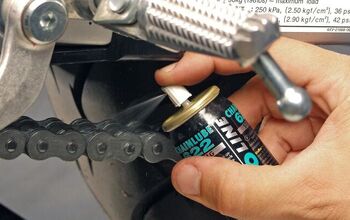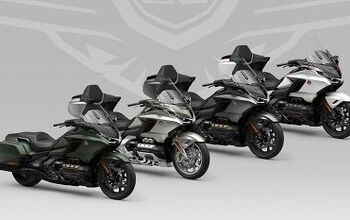Five Things You Must Do Following a Motorcycle Accident
Crashing sucks and never more so than when riding a motorcycle. The risk of bodily injury from even a minor accident is far greater than when involved in a similar situation while piloting an automobile.
Protecting yourself begins with proper training and continues with riding practice and acquiring experience. Great advances have been made in the materials and manufacturing of motorcycle apparel regarding both protection and comfort. But none of these are a 100% safeguard against having an accident. If you’re involved in a motorcycle accident (or come upon the scene of one), knowing how to react is the next step in protecting yourself, your passenger and your motorcycle from further harm.
Hopefully this is a list you’ll never have to use.
Remain Calm
Unless you’re cognizant of some impending danger, do not move. Lay there, then – beginning with your toes and finishing with your skull – take a mental inventory of your body parts. Evaluate each for pain and movement. Try to remember that you may be experiencing shock and that adrenalin masks pain, both of which may cloud judgment of your physical condition. Once satisfied you’re uninjured, then begin moving and/or removing riding apparel.
The scene of an accident is inevitably chaotic. If you become anxious, calm yourself by taking deep breaths. Compose yourself because anxiety is infectious and arousing others only complicates matters. You also need a clear head to effectively assess the situation.
Assess the Situation
Once you’re satisfied that everyone’s safe and any further dangers have been contained, call the police and report the accident.
If you’re carrying a passenger, check on their condition, then check on the condition of others involved in the accident. Instruct everyone to perform the same mental inventory of body parts you did. If necessary, dial 911 and immediately request emergency services. Survey the scene for other present dangers such as fire, leaking hazardous fluids, oncoming traffic, etc. Take any necessary precautions to secure the safety of anyone present. Once you’re satisfied that everyone’s safe and any further dangers have been contained, call the police and report the accident.
Record Details
Use your smartphone to notate details of the accident and take photos/videos, or write notes if pen and paper are available but no smartphone.
Things to record:
1. Date, time, location, weather and road conditions of the accident
2. Your account of the accident including a diagram
3. Injuries and damages
4. Make, model and license plate of any vehicle involved
5. Names, phone numbers and insurance information of all people involved. Be certain to include the names and numbers of willful witnesses.
Things to photo/video:
1. Skid marks
2. Street signs
3. Visual obstructions
4. Road abnormalities
5. Property damage
Contact Insurance Company
Contact your insurance agent as soon as possible. Provide them with all the information you procured and be proactive in assisting them with acquiring any further information. They are there to protect you after the accident, so assist where and when you can to help expedite the process.
Maintain Records
Create a folder, or some other central location, for keeping all your notes and photos of the accident, as well as contact information for everyone including witnesses and police officers. Procure a copy of the police report. Make new notes including names, dates and times of phone conversations with insurance agents or law enforcement officials. Print copies of email exchanges, etc. Save all receipts of costs incurred related to the accident including towing, storage and rental car costs. These records will help support your case if there are any complications.
A former Motorcycle.com staffer who has gone on to greener pastures, Tom Roderick still can't get the motorcycle bug out of his system. And honestly, we still miss having him around. Tom is now a regular freelance writer and tester for Motorcycle.com when his schedule allows, and his experience, riding ability, writing talent, and quick wit are still a joy to have – even if we don't get to experience it as much as we used to.
More by Tom Roderick




























Comments
Join the conversation
#6 - Pick up your bike and if it is still somewhat rideable continue with the plans you have made for that day and ride on. Do not let the crash and bike damage discourage you into going home, sitting on the couch, and drowning yourself in sorrow.
Stop the bleeding!!!